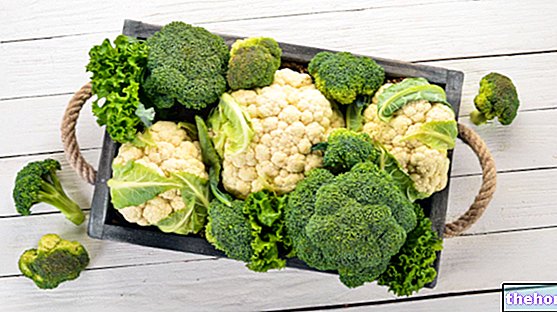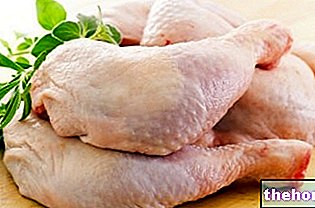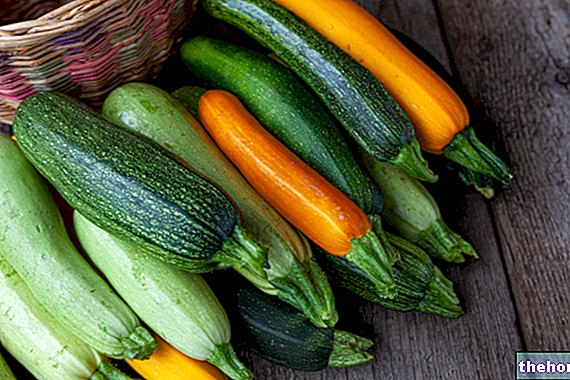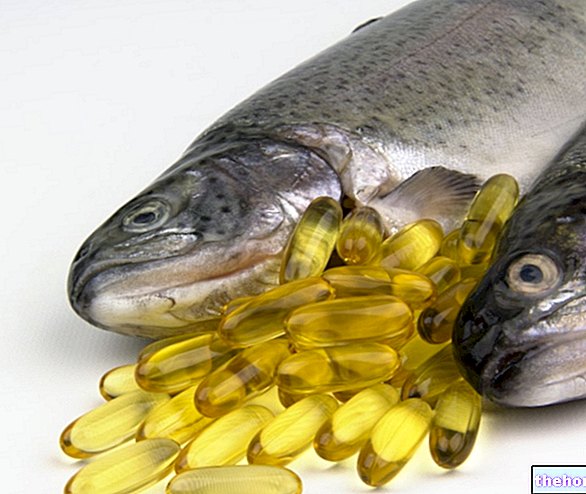by Simona Bertoli
Head of the Obesity Unit and Research Laboratory on Nutrition and Obesity, Department of Endocrine and Metabolic Diseases IRCCS Istituto Auxologico Italiano
Associate Professor of Food and Dietary Sciences, Department of Food, Environmental and Nutritional Sciences (DeFENS), University of Milan
Coordinator of the Ambulatory Nutrition Service, International Center for the Assessment of Nutritional Status, ICANS, University of Milan
. It is obvious, we have known this new virus for a few weeks, we know very little about its biological characteristics, there are no studies on possible pharmacological treatments, there is no scientific evidence on which foods or nutrients are able to improve our immune defenses to prevent or fight this infection.
However, the possibility of modulating some of the functions of the immune system through the intake of specific nutrients or foods rich in functional nutrients has been extensively studied in recent decades. In particular, immuno-stimulating properties have been demonstrated for some vitamins (Vit. A, C, E and D), for some micronutrients such as zinc and selenium and more recently for probiotics.
Over 140 animal studies suggest that vitamin C can prevent or relieve the symptoms of infections caused by bacteria, viruses, and protozoa. The most studied human infection is the common cold where vitamin C administered regularly appears to reduce the duration of symptoms, indicating a biological effect. Only two controlled studies have found a therapeutic benefit of vitamin C for patients with pneumonia. effects of vitamin C against infections need to be further investigated (Hemilä 2017).
In recent years, numerous studies have been directed at the possible role of vitamin D following the discovery of its many extraskeletal effects, and neither has a relevant impact on innate and adaptive immune responses been demonstrated. According to most authors, more studies are needed to explore the preventive effect of vitamin D supplementation on viral infections (Gruber-Bzura 2018).
Among the minerals, the most studied in the immunological field is Zinc. It has been shown, in studies in animal models and in humans, that its deficiency can lead to alterations in the integrity of the immune system (Dardenne 2002). A marginal deficiency has been observed in various "at risk" population groups, such as the elderly, supporting the hypothesis that supplementation in the most vulnerable subjects could prevent compromise of the immune system and substantially improve resistance to infections in these subjects.
More recently, scientific interest has been directed to probiotics which, in addition to having a specific role in regulating the intestinal microbiota, appear to have an immunomodulatory effect. Among probiotics, β-glucans are the most studied, and the best known effects derive mainly from studies. carried out on animals and consist in the "increase of" phagocytosis activity and the activity of natural-killer cells (Akramienė 2007).
Where do we find these nutrients? Our Mediterranean-type dietary model, characterized by an abundance of plant foods such as bread, pasta, vegetables, legumes, fruit and dried fruits, olive oil as a primary source of fat, moderate consumption of fish, white meat, dairy products and eggs, moderate amounts of red meat and modest consumption of wine during meals, provides an optimal supply of all the "functional" nutrients that can play an immunomodulatory role, leaving the use of supplements to cases in which a state can be hypothesized deficiency.
and on our eating behavior in particular:
- the reduction of daily physical activity, as a consequence of smart working, the closure of gyms and sports associations, the invitation to only essential movements and, for children, the closure of schools and all recreational sports activities has determined a significant reduction in the daily energy requirement. For example, a 40-year-old man with a weight of 73 kg and a "height of 180 cm and with a moderately active lifestyle has an estimated energy requirement between 2730 and 2990 kcal per day which becomes 1710 -2480 kcal per day. day if the lifestyle becomes sedentary (LARN, 2014) 500-1000 kcal less per day which should correspond to a corresponding reduction in food consumption;
- The anxiety, stress and boredom that can occur at this time can favor the onset or worsen, in those who already suffer from it, the so-called "emotional eating", ie the use of food as a compensation mechanism through which to regulate and reduce negative emotions This behavioral alteration leads to the consumption of food generally rich in sugars and fats and therefore hypercaloric, with a high glycemic index and a high quantity of cholesterol (Marieke 2011);
- the need to reduce the opportunities to go out to shop leads to a greater consumption of preserved foods, generally with a higher sodium content, fats, preservatives and less availability of fresh fruit and vegetables, worsening the quality of the diet overall.
What are the consequences?
The consequences are an increased risk of weight gain and a worsening of the clinical picture in subjects already suffering from overweight, obesity, diabetes and metabolic syndrome.
What to do?
Implement motor activities in house using exercise bikes, treadmills or relying on the many tutorials on the web where exercises to be carried out without special tools are suggested.
Cooking with imagination following the Mediterranean model and increasing the consumption of fruit and vegetables to at least 5 portions to ensure the correct consumption of vitamins, minerals and functional nutrients and reduce caloric intake increase physical activity, cooking or implementing other recreational activities will be it is also very helpful in combating emotional eating.
-Prevention or Therapy? Int J Mol Sci.Levels of Reference Intake of Nutrients and Energy for the Italian Population (LARN), IV ed. 2014. Italian Society of Human Nutrition (SINU)
Marieke A. Adriaanse, Denise T.D. de Ridder & Catharine Evers Emotional eating: Eating when emotional or emotional about eating ?, Psychology & Health, 26: 1, 23-39, DOI: 10.1080 / 08870440903207627
Further Information and Updates on 2019 nCoV
For more detailed information on the new Coronavirus, on correct prevention, on infections in Italy, on the rules to be respected and on the quarantine procedures, we recommend reading the dedicated articles:
- Coronavirus: What is it? Contagion and Symptoms
- Coronavirus 2019-nCoV: How to Recognize the First Symptoms and What to Do
- Coronavirus: Prevention, Contagions and Subjects at Risk
- New Coronavirus: Infected in Italy and Rules to Follow
- Coronavirus: how to prevent the risk of contagion from 2019 nCoV
- Coronavirus in Italy: Provisions and Measures on contrast and containment
- New Coronavirus: medical prescription via email or message
- Covid-19: what to eat in quarantine to balance a sedentary lifestyle

















.jpg)











